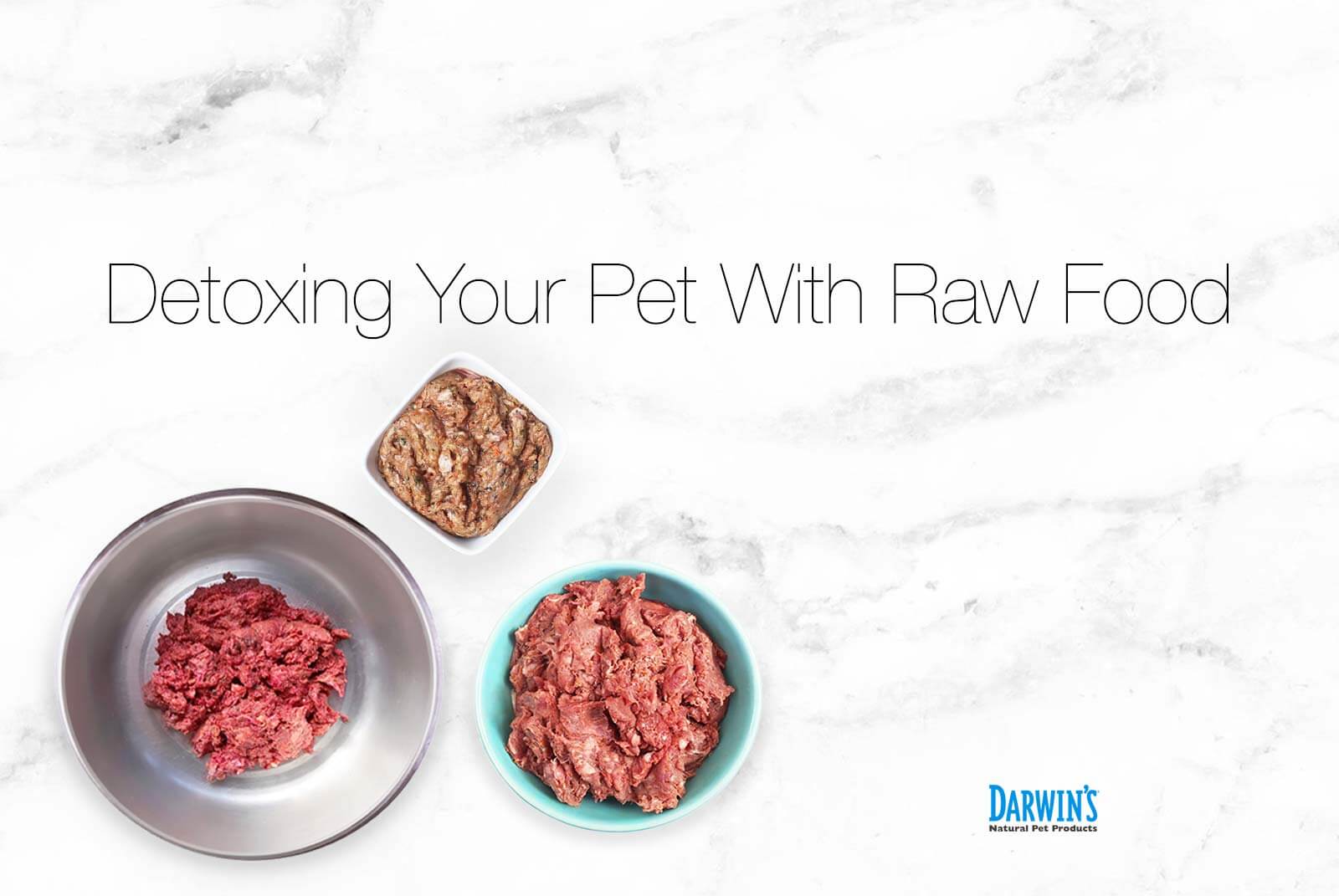Helping Your Pets Detox
6/2/15

Detoxification is essential for any animal that has been treated with multiple courses of medications such as steroids, antibiotics or antihistamines which are often prescribed for animals with itchy skin or digestive disorders. Even pets who have been on a heavily processed diet for years will experience a build up of toxins in their body which must be released when they switch to a healthier diet.
Changing to a raw food diet can initiate detoxification and you may see an increase in symptoms such as itching or an odd rash develop initially, but it will typically diminish within 7 to 14 days. Herbal rinses or oatmeal baths can help sooth itchiness and rashes until symptoms subside. However, be cautious of using oatmeal shampoo if your dog has a yeast infections. Oatmeal shampoo can exacerbate this issue.
The elimination process can be supported with herbal or homeopathic remedies. Milk thistle and dandelion are commonly used for detoxification and liver support. The length of time it takes to detoxify will vary with the severity of the problem and the response of the individual animal. If you don’t see any improvement in 21 days, or if symptoms worsen, consult a holistically trained veterinarian.
For dogs and cats that exhibit digestive difficulties such as loose stools, additional supplements can help support the health of the intestinal lining.
Probiotic supplements can aid in re-establishing the healthy bacteria needed by your pet’s digestive system. You can give human probiotic supplements to dogs and cats, just adjust the dosage to your pet’s weight, (usually ¼ capsule for cats, and ½ – 2 capsules for dogs).
L-glutamine is an amino acid that is critical for maintenance of proper intestinal metabolism, structure and function. Most health food stores carry several brands of L-glutamine. Again, adjust dosage to your pet’s weight – keeping in mind that most suggested dosages on the bottle are for a 120-150 lb human.
Slippery Elm is a useful herb for detoxification and intestinal support as it both soothes and tones tissues while drawing out and eliminating toxins. You can make a gruel out of the powder or purchase a tincture (preferably glycerin based).
Always consult a veterinarian when your dog or cat shows signs of any illness. When more serious causes have been ruled out, however, a diet change may be just what is needed to alleviate chronic itching or digestive troubles.
Resources:
Natural Veterinary Medicine by Susan G. Wynn and Steve Marsden
Herbs for Pets by Gregory L. Tilford and Mary L. Wulff



